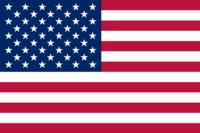
Trump announces global taxation! How Chinese chemical and plastic enterprises should respond
HZ info2025-04-08 10:12
HZ info: On April 2nd local time (April 3rd Beijing time), US President Trump signed two executive orders at the White House regarding so-called "equivalent tariffs", announcing the establishment of a "minimum benchmark tariff" of 10% for trading partners and the imposition of higher tariffs on certain trading partners.
The White House issued a statement stating that President Trump declared a national emergency on the same day to enhance America's competitive advantage, protect its sovereignty, and strengthen its national and economic security.
Trump told the media in the White House Rose Garden that "equivalent tariffs" are "not completely equivalent," and the United States will charge "about half of the tariffs that other countries and regions charge us. For countries and regions that are not good to us, we will calculate the total amount, including non monetary barriers, "Trump said.
He announced that the United States will impose a minimum benchmark tariff of 10% on goods imported from other countries and regions.
Trump also said that starting from the 3rd, the United States will impose a 25% tariff on all imported cars manufactured abroad. The automobile tariffs will cover cars, light trucks, engines, transmissions, lithium-ion batteries, as well as smaller components such as tires, shock absorbers, and spark plug wires. The tariffs on automotive parts will be levied no later than May 3rd.
Surprisingly, Trump stated that the car tariffs will also cover all imported computers, including laptops and desktop computers, at a rate of 4%.
Trump claimed that the new tariff measures are aimed at promoting American manufacturing, "making America rich again," and "jobs and factories will come back.
The White House announced that a benchmark tariff of 10% will begin on April 5th, while higher tariffs on different trading partners will begin on April 9th.
Trump displayed a large plaque labeled with "equivalent tariffs," indicating which trading partners the United States plans to impose tariffs on and how much tariffs to impose.
The chart displayed by Trump shows that tariffs on China are 34%, tariffs on the European Union are 20%, tariffs on Vietnamese products are 46%, tariffs on Taiwanese products are 32%, and tariffs on Japanese products are 24%.
It is worth noting that the United States has previously imposed a 20% tariff on Chinese goods, and this time it has imposed an additional 34% tariff. US Treasury Secretary Scott Besant has confirmed that this will result in a total tariff rate of 54% imposed by the US on Chinese goods.
Response and countermeasures from all parties involved
Economists are concerned that Trump's tariff policies will inevitably push up US inflation and damage consumer confidence. The forecast from the Yale University Budget Lab shows that after the implementation of "equivalent tariffs", if other countries do not take retaliatory measures, the price of personal consumption expenditure in the United States will rise by 1.7% in the short term, and the real GDP growth rate in 2025 will decrease by 0.6 percentage points; If other countries take retaliatory measures, the price increase of personal consumption expenditure in the United States will expand to 2.1%, and the real GDP growth rate will decrease by 1 percentage point.
In response to Trump's "tariff parity" plan, the President of the European Commission von der Leyen said that the EU was ready for a "strong retaliation plan", including counter-measures against the export of services such as large US technology companies.
Canadian Prime Minister Carney has stated that if Trump fulfills his promise of "reciprocal tariffs," Canada plans to implement countermeasures on US goods this week.
Irish Prime Minister Michelle Martin expressed deep regret over the US decision to impose a 20% tariff on EU imports.
He said that Ireland believes in openness and free trade, and imposing tariffs is' not conducive to the world economy '. The daily trade volume of goods and services between the European Union and the United States exceeds 4.2 billion euros, and the imposition of tariffs by the United States is' unreasonable '.
Martin said that disrupting this deeply integrated relationship is not beneficial for anyone. Tariffs can lead to inflation, harm people on both sides of the Atlantic, and put employment at risk.
Martin stated that Ireland will work with its EU partners to consider how to respond. It believes that the EU's response should be thoughtful and any action should be moderate, aimed at safeguarding the interests of businesses, workers, and citizens. He also pointed out that now is the time for dialogue, and he believes that making progress through negotiations is the only wise choice.
That evening, Irish Deputy Prime Minister Harris also responded to the US announcement of tariffs, stating that "there is no winner on the tariff issue" and that imposing a 20% tariff on EU goods could "have a significant impact on Irish investment and the broader economy", adding that this impact "may last for some time".
According to the website of the Chinese Ministry of Commerce, the spokesperson of the Ministry of Commerce made a statement on the announcement of equivalent tariffs by the United States on the 3rd.
The spokesperson stated that China has noted that on April 2nd Eastern Time, the US announced the imposition of "equivalent tariffs" on all trading partners. China firmly opposes this and will take countermeasures to safeguard its own rights and interests.
The spokesperson pointed out that the US claims to have suffered losses in international trade by raising tariffs on all trading partners under the pretext of so-called "equivalence". This approach ignores the balance of interests reached in multilateral trade negotiations over the years and the fact that the US has long benefited greatly from international trade. On the basis of subjective and unilateral assessment, the US has come to the conclusion that the so-called "equivalent tariffs" do not comply with international trade rules and seriously harm the legitimate rights and interests of relevant parties, which is a typical unilateral bullying practice. Many trading partners have expressed strong dissatisfaction and clear opposition to this.
The spokesperson emphasized that history has proven that raising tariffs cannot solve the problems of the United States itself, which not only harms its own interests but also endangers global economic development and supply chain stability. There is no winner in a trade war, and protectionism has no way out. China urges the US to immediately lift unilateral tariff measures and resolve differences with trading partners through equal dialogue.
The impact on China and the chemical industry
According to data released by the General Administration of Customs, the total trade volume between China and the United States in 2024 was 688.28 billion US dollars. Among them, China exported $524.656 billion to the United States and imported $163.624 billion from the United States.
If the United States imposes a 34% tariff on $524.656 billion worth of goods exported from China, the cost of tariffs would increase by approximately $178.383 billion.
For the chemical and plastic industry, after the United States imposed tariffs on Chinese chemical and plastic products, the competitiveness of Chinese chemical and plastic products in the US market has significantly decreased, and related companies may face a decrease in orders and revenue. In addition, other exporting countries may seize some of the US market, further compressing the market share of Chinese plastic products.
Additionally, the instability of the supply chain is also a significant impact. The imposition of tariffs has led to instability in the supply chain, which means weakened export competitiveness and increased supply chain risks for Chinese chemical and plastic enterprises. Especially in the chemical products imported by the United States to China, plastics and their products, organic chemicals, and rubber and their products account for a relatively high proportion. The decline in export competitiveness of these products will directly affect the operations of related enterprises.
Enterprises going global to Southeast Asia are affected
In recent years, with the restructuring of the global industrial chain and the ongoing trade friction between China and the United States, Southeast Asian countries including Vietnam, Thailand, Indonesia, etc. have gradually become popular destinations for Chinese companies to invest overseas. From smartphone assembly to new energy vehicle components, from solar cells to semiconductor materials, Chinese companies are continuously expanding their investment fields and scales in Vietnam.
The "equivalent tariffs" claimed by Trump this time also affect Southeast Asian countries, such as imposing a 46% tariff on Vietnamese goods, a 36% tariff on Thailand, and a 32% tariff on Indonesia. Therefore, companies going to Southeast Asia are expected to be affected as well.
Response strategies and suggestions:
Diversified market: Seeking diversified market strategies, reducing dependence on a single market, and exploring new market channels.
Technological innovation: By means of technological innovation, production costs can be reduced, and the added value and market competitiveness of products can be improved.
Policy coordination: Strengthen policy coordination with relevant countries and regions, and strive for more trade preferences and exemptions.
Supply chain optimization: Optimize supply chain management, reduce supply chain risks, and ensure stable product supply.
It is expected that the Middle East and North Africa will become new hotspots for overseas investment
Based on Trump's claim of "equivalent tariffs" this time, Saudi Arabia and Egypt are at 10%, far lower than Southeast Asian countries. In this situation, Saudi Arabia and other places are expected to become new hotspots for overseas investment.
For a considerable period of time in the past, the high prices of crude oil have brought substantial profits to countries in the Middle East. However, excessive dependence on resources and fragile economic structures are common problems in resource exporting countries. At a critical stage of global chemical manufacturing and new energy transformation, Middle Eastern countries are seeking to transition away from dependence on the oil economy. Investment has become the preferred transformation method for Middle Eastern tycoons who hold large sums of money. On the one hand, Middle Eastern countries purchase high-quality assets through their strong financial strength, reducing their dependence on the oil economy in national development. On the other hand, they maintain sufficient influence and discourse power in the fields of chemical new materials and new energy by participating in and controlling core chemical, new energy, and downstream enterprises.
More Hzinfo
- BORGEM's Direct-Drive Tech Thrives at CHINAPLAS Booth 12A41
- On the first day of CHINAPLAS 2025, the booth NO.12A41 of BORGEMbecame the highlight of the entire exhibition!
-
2025-04-16
- Avient to Present a Broad Array of Innovative and Sustainable Materials Solutions at Chinaplas 2025
- Avient Corporation showcase its portfolio of advanced and sustainable products and services and host three technical seminars at Chinaplas 2025.
-
2025-04-16
- Recommended products:Grade Anti-Rust Pigment Aluminum Tripolyphosphate SAP-1
- Aluminum tripolyphosphate is a non-polluting material that does not contain harmful heavy metals and has excellent oil resistance, heat resistance, weather resistance, and wear resistance.
-
2025-04-16


 English
English 简体中文
简体中文 Русский
Русский إنجليزي
إنجليزي